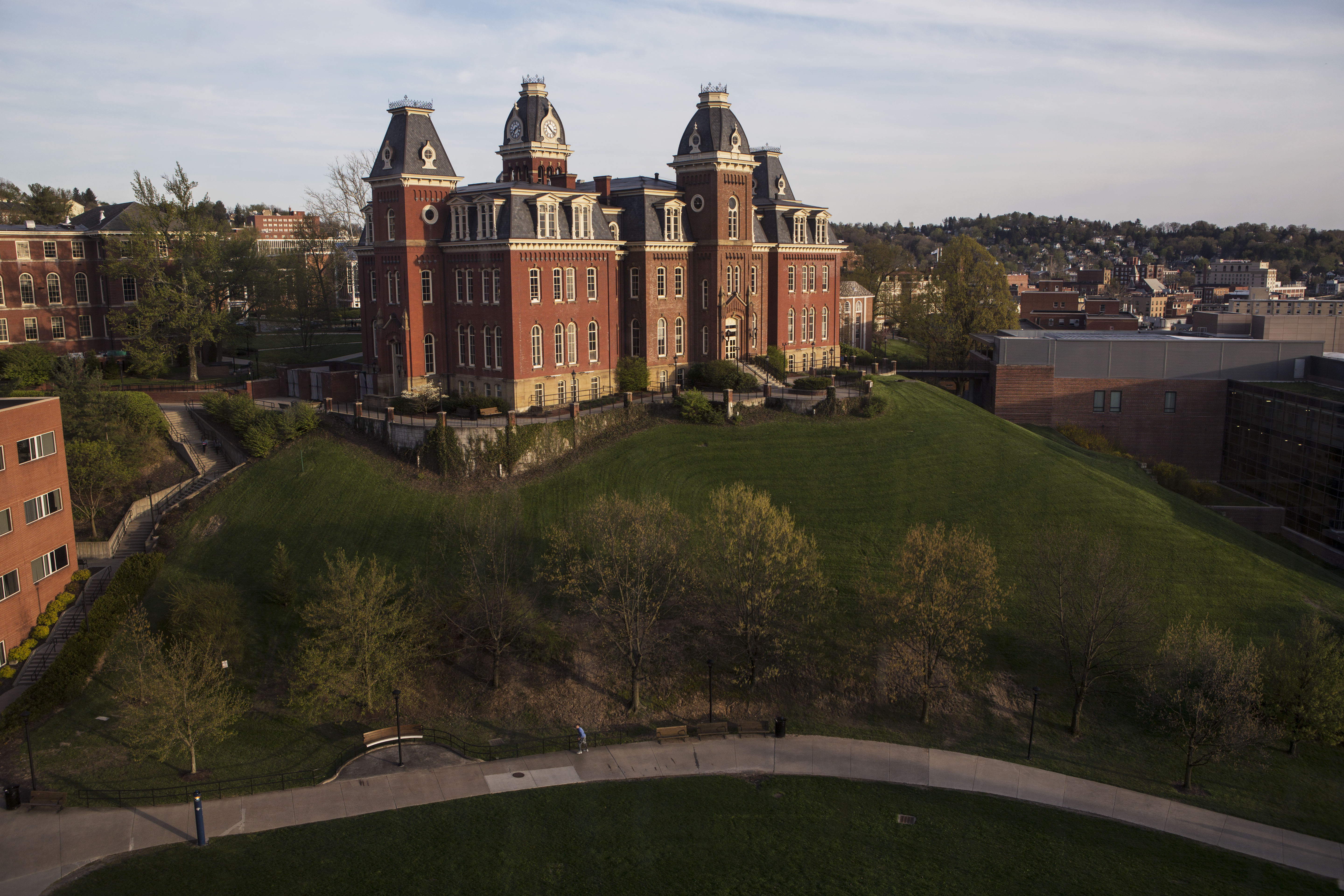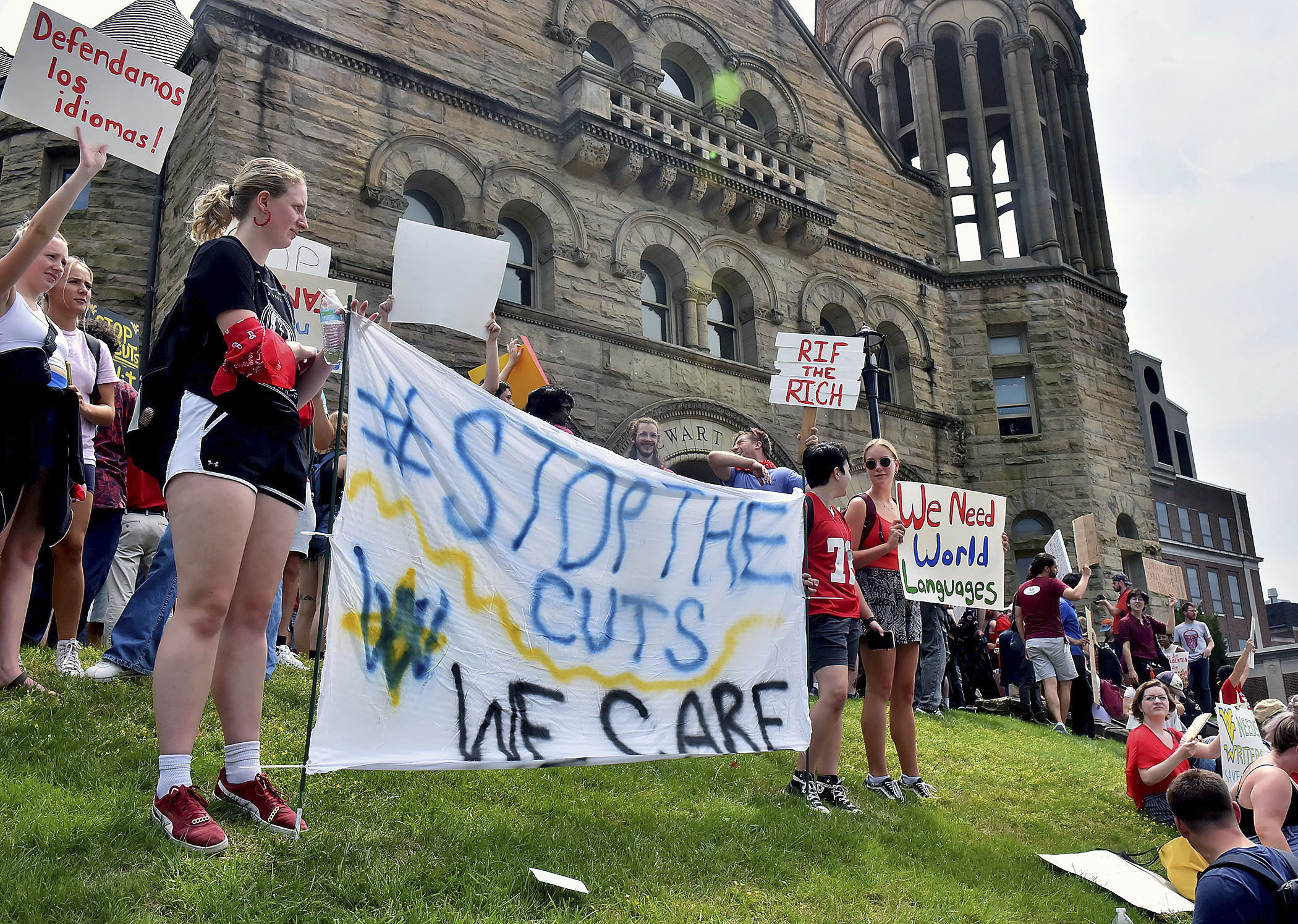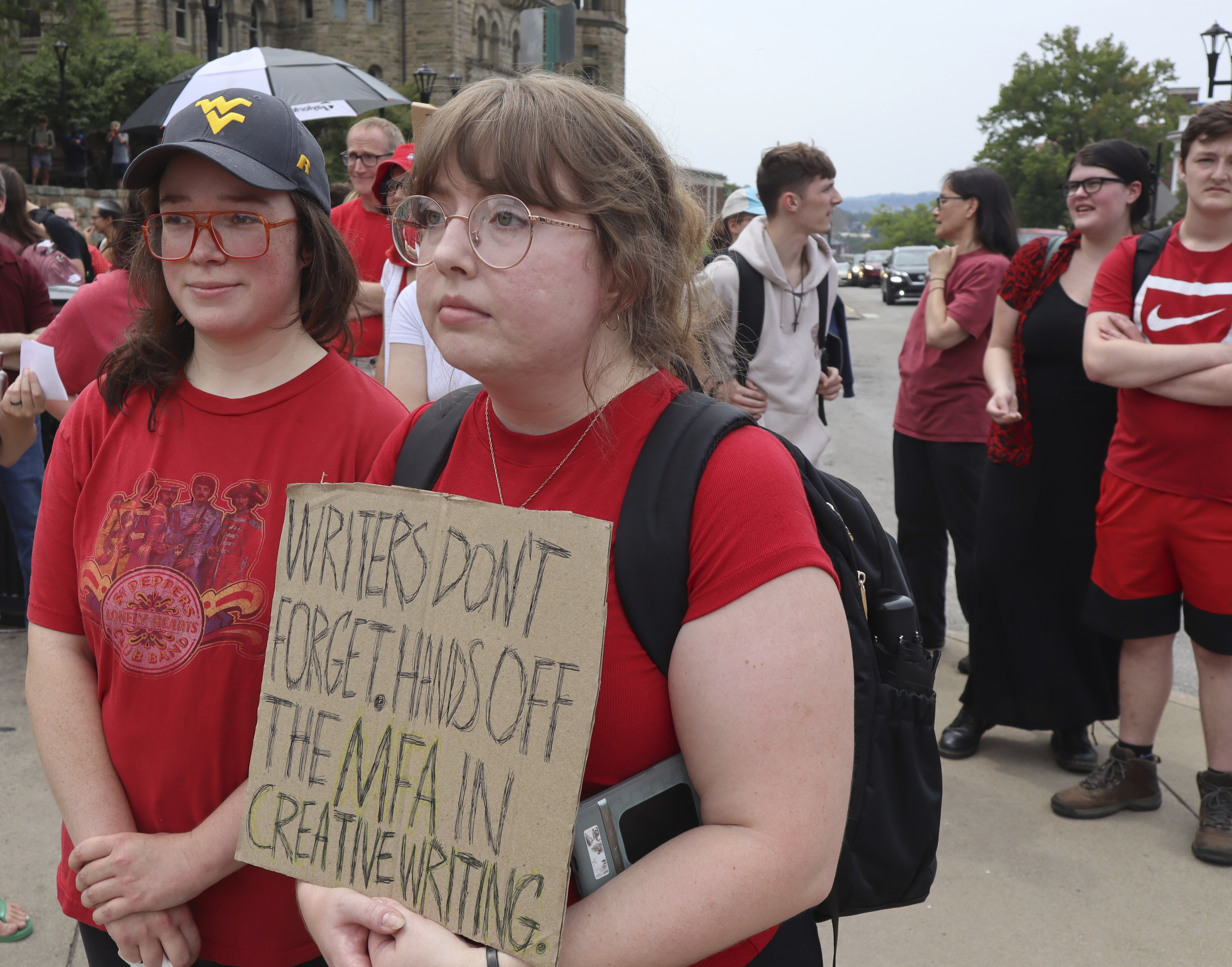
WVU students stage walkout
Hundreds of West Virginia University students walked out of class on Monday in opposition to proposed cuts to academic programs in light of a looming $45 million budget shortfall for the public institution.
Dual rallies on both the school’s Downtown and Evansdale campuses were organized by the West Virginia United Students’ Union. Opposition planning began early this summer, but came to a head after university officials recently proposed the elimination of 9% of majors and 7% of faculty (32 majors and 169 faculty, according to the New York Times).
University officials have stated that the cuts would directly affect 434 students, about 2% of enrollment, and have cited low program interest as the rationale behind plans to make cuts to world languages, literature and linguistics. Officials have also highlighted a student population that has declined by 10% since 2015 and declining college enrollment nationwide as factors, according to the Associated Press.
In an interview with the AP, professor Lisa DiBartolomeo, who coordinates the Russian studies and Slavic and East European studies programs at WVU, urged for the programs’ continuation.
“I don’t see how it avoids pushing people out of state, and I think the impact on West Virginia students happens from top to bottom,” she said. “I think what’s going to happen is going to exacerbate the already existing brain-drain that West Virginia has experienced for decades. Young people see fewer and fewer options for their futures in the state of West Virginia.”
West Virginia lost the greatest percentage of its residents of any state from 2010 to 2020 and is the only state that has fewer residents than it did in 1950.
Preferred outcomes among demonstrating students varied, but range from advocating for an increased state allocation to the school drawing from the state’s record $1.8 billion surplus; seeking an independent audit of the school’s finances; reducing the number of administrators and/or their salaries; reducing spending in other areas; and asking specifically for WVU President Gordon Gee’s resignation.
Around noon on Monday, participating students began filing out of class and into the Free Speech Circle in front of the school’s Mountain Lair and adjoining areas to voice a chorus of disapproval for the cuts ahead of Sept. 1, when the WVU Board of Governors is expected to make a final recommendation.
“I don’t think any of us here really think that’s when our fight ends,” said Loudoun County, Va., native Winston Smith, a sophomore political science major. “Even after, we can still fight and try to get them to change their mind until everything they want to do has taken place.”
As they marched from the circle to Stewart Hall, which houses administrative offices, students, many clad in red, chanted “Hey, hey, ho, ho, Gordon Gee has got to go” while carrying signs with slogans ranging from “Save World Language” to “RIF the Rich,” “Gordon Gee needs to go now” and “The PRT works better than our administration.”
When Mr. Smith chose WVU, he did so because he appreciated the beautiful mountains and campus.
Recently though, he has found the administrative landscape less than appealing.
“I have some good friends who are in the world language department and my degree is a bachelor of the arts. It requires four semesters of a language,” he said. “If they cut the world language department, they’re planning on also cutting the requirement for BAs to take four semesters of a language, so my degree would be devalued.
“West Virginia, on my resume, wouldn’t be able to compete with a school on someone else’s resume because of what would be a lesser education. … It devalues the school as a whole.”
Throughout the summer, Mr. Smith and others like Follansbee, W.Va., native Matthew Kolb have worked to organize and mobilize students via both social media and in-person meetings.
On Monday afternoon, they took to megaphones, passed out pizzas and water donated by supporters, and listened as speakers expressed their beliefs and musicians performed during the roughly two-hour demonstration that organizers say drew out “hundreds” of participants.
“Campus looked like it was more alive than ever this morning,” Mr. Kolb said. “It’s the biggest rally I’ve ever seen on campus and I’ve been here for four years now. I haven’t seen anything like that before.”
According to the AP, Mr. Gee indicated to the university’s faculty senate earlier this month that he plans to step down upon expiration of his contract in two months. That news was reported one week after the board of governors extended his contract by one year to June 2025.
In the short-term though, the protesting students were pleased with the situation on the ground.
“People were excited and happy to see there were a lot of people who cared,” Mr. Smith said. “The administration has been saying that students don’t really care and that it will only affect a small number of students, which is the narrative they’ve been trying to give to parents, and the media and to alumni.
“But with the amount of students that showed up, obviously we know that’s not true. …There were a lot of students who were, of course, pretty angry about what the university was doing. But for the most part, a lot of students were hopeful that the walkout and anything we do in the future can make the university reconsider its decisions and do things more in line with its mission to provide education.”
The Associated Press contributed to this report.


